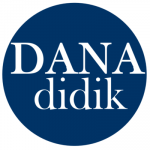Since it was established in 2015 by Dipo Satria, Eka Ginting and Januar Sudharsono, student loan crowd-lending startup DANAdidik has funded more than 500 “last-mile” loans for vocational and university students in their final year of schooling and has received loan applications from more than 30,000 students. This year, the company is refocusing on a particular subset of college students: those studying for careers in the healthcare field.
Helped by impact investors like Garden Impact Investments and the Vanderes Foundation, DANAdidik is trying to broaden the way Indonesia helps fund higher education. DANAdidik offers student loans at a 20% interest rate; borrowers need to start repaying the loan only after they have secured employment, with a percentage of their income. In the larger market, an unsecured four-year loan for IDR 10m from consumer lending marketplace Duitpintar charges about 12–18% interest p.a., similar to offline lending rates.
CompassList caught up with DANAdidik CEO and co-founder Dipo Satria to learn more about his company and the state of the nascent student loan industry in Indonesia.
This interview has been edited for length and clarity.
Q. When you decided to establish DANAdidik, what problems were you trying to solve?
It was a bit personal. Januar [Sudharsono, DANAdidik's CTO and co-founder] was having difficulty paying his tuition, and both my mother and my wife experienced the same problem. Early on we built an MVP website, and in the first five months – without advertising – we got more than 4,000 people applying for loans. It showed us that the problem is real, and [student loans] seemed to be something people really needed.
According to USAID research [from 2012], more than 19m Indonesians of college age are not in higher education, and 73% of those who are going to college have to be financed through loans. It really is a big deal for a lot of people.
Out of that 73% of college students who need loans, what's the target market size for DANAdidik?
This year, we are focusing on helping students going into the healthcare industry. This includes people studying medicine, nursing, midwifery, and even radiology technicians. We're mainly focusing on nursing students in our portfolio.
Why nursing?
DANAdidik provides loans with lower interest rates than banks and a longer tenor/payment term, but it's still a loan. The most important thing to ensure repayment and lower risk is the employability of the students. Between a mechanical engineering student in Jakarta and a nursing student in Jember, East Java, we would pick the nursing student. The engineering student might earn more and have better career prospects in the long term, but the nursing student would secure a job faster. There is still a lot of demand for nurses as hospitals continue to grow in number and size.
What about students in other fields? Can they still apply?
It's on a case-by-case basis. Last week we launched an endowment fund program with Institut Teknologi Harapan Bangsa (ITHB) [a private university with engineering and business undergraduate programs] to support their students, but generally applications are accepted on a case-by-case basis. Strategically, we want to focus on healthcare and dedicate 80–90% of our portfolio to this field.
What does the ITHB program involve and what challenges does it present?
We're working with ITHB to convert their scholarship fund into a fund that finances student loans. The problem with scholarships is that the money isn't returned, and the university has to seek new funds every year if they want to keep giving scholarships. Plus, scholarships are only awarded to a small percentage of students – the smartest students – whereas the biggest need for funding might be for the average students.
We decided to turn the scholarship into an "endowment fund" of sorts, but through a loan mechanism. We only take a minimum return for the platform and the rest goes to the college, but the main thing is that the principal is always paid back and available to the next round of students.
How much is DANAdidik's usual platform fee?
We take a 5% cut for every loan issued, and charge 5% for every loan repayment. In cases where the funds come from scholarship or CSR, we can charge even less.
What is your interest rate, then?
In most cases, the interest rate is 20% p.a, which is still cheap compared with banks.
Do you think that the 20% rate is balanced between your business needs and your mission?
I wish we could bring it lower, but the rates are driven by the market. The only way to give lower rates is to get cheaper sources of funds, and it takes time.
How many people have joined to finance loans through DANAdidik?
We are still small, and 93% of our loans are funded by institutional sources such as impact investors and other companies. There is a growing trend toward impact investing worldwide. In Europe, it's already a much more mature space compared with Asia. We're betting that it's going to be the next big thing.
Speaking of which, why aren't banks and other financing institutions in Indonesia going into the student loan business?
I think the intention is there. Last year, Mr. Jokowi [Joko Widodo, President of Indonesia] went to the US and was amazed by the student loan industry. However, the US is not the only model for student lending. Returning from that trip, Jokowi asked all of the banks to develop student loan products, and many banks have allocated budgets for them.
The problem is disbursing the loans – they don't know how yet. Some banks have tried offering student loans, but it's very hard for them to do because the product doesn't fit their risk appetite.
Is DANAdidik aiming for profitability?
We are, yes. I think most fintechs aim for profitability [from the start], unlike other categories of startups. The game is different. For fintech, profitability is a question of volume. When enough people use their service, they can profit.
And what is DANAdidik's situation on that front?
We've got a long way to go. If we can successfully close our fundraising, we can reach profitability within one-and-a-half years.
Can you tell us how much you're seeking?
We can't disclose that yet, but we are in talks with investors.
Are they impact investors?
Yes. In terms of equity investors, impact investors fit the bill. Without them, it's easy to go out of line. If we have too many commercial investors – [while] we want to expand our range of lenders on our platform, to include banks, etc. – we might end up deciding to push up our interest rates. We don't want to do that.
Impact investors have different KPIs, so they can help us avoid that. Of course, everyone wants to make money and exit, but in lending it's dangerous to rush and increase interest rates, because it can kill your business.
How would you allocate the funds you raise? Say you have US$1m, how would you use it?
Mainly we'll be using the funds to build our team, and that can easily take 40% of the funding. Another 20–25% goes to improving our tech, and the rest goes to marketing.
Have you encountered any major difficulties in hiring talent?
I think everyone encounters such difficulties. For us, it's specifically for data science, because it's such a new space. For people working with SME loans and such, they can fall back on historical bank data, but for student loans it's very different. We looked at many models but we couldn't find one that fits our purposes, so we decided to build our own.
Speaking of funding, how did you meet Garden Impact Investments back in 2017?
I don't really remember the specifics, but I can say that Garden Impact is very aligned in what we're doing in terms of impact investing. Everyone has different interpretations of impact investing, but for us it means that we're willing to get lower returns in exchange for making more positive impacts.
We have three main social impact KPIs to measure impact. First is the student's income after graduating compared with their parents', which can be three to four times higher. Second, how many of them are the first in their family to go to college, which has been around 60–70% of our applicants. Third is the gender ratio, and since we're focusing on nursing, there are more women in our loan portfolio.
Everyone has different views on how to break the poverty cycle, but for us the funds and resources are best spent on higher education. When one child gets higher education, it lifts their entire household's income, and may lead to helping their siblings go to college too.
How has Garden Impact supported DANAdidik other than in funding?
Garden Impact has a very good reputation in the impact investing space, especially in Southeast Asia, so that gives our company a good reputation as well. They brought us a few new lenders onboard. One of them is the Vanderes Foundation, which only invests in education, including student loans. The others I can't disclose yet, but they are from outside Indonesia.
What are DANAdidik's plans for the the next few years, and what do you want to achieve in the long run?
In the short term, we're just focusing on increasing the number of transactions and borrowers. We want to stick to the healthcare sector for the next five years.
Our mission has always been to bring everybody through college; the more we can achieve that, the better. I think we're still aligned with that, and it fits our business. The more good we do, the more money we make.















